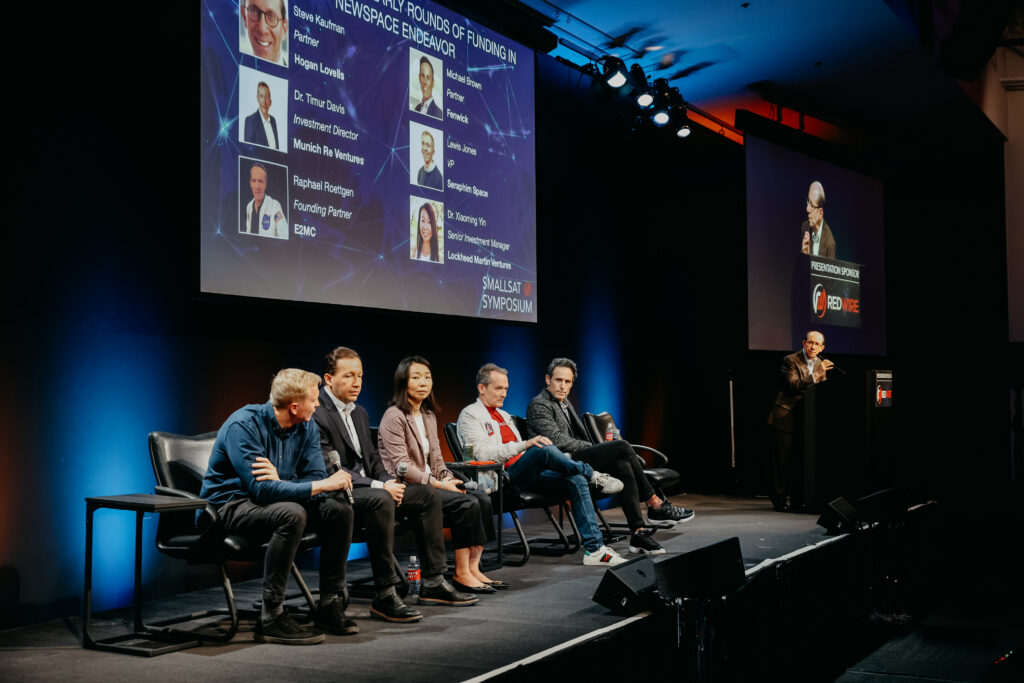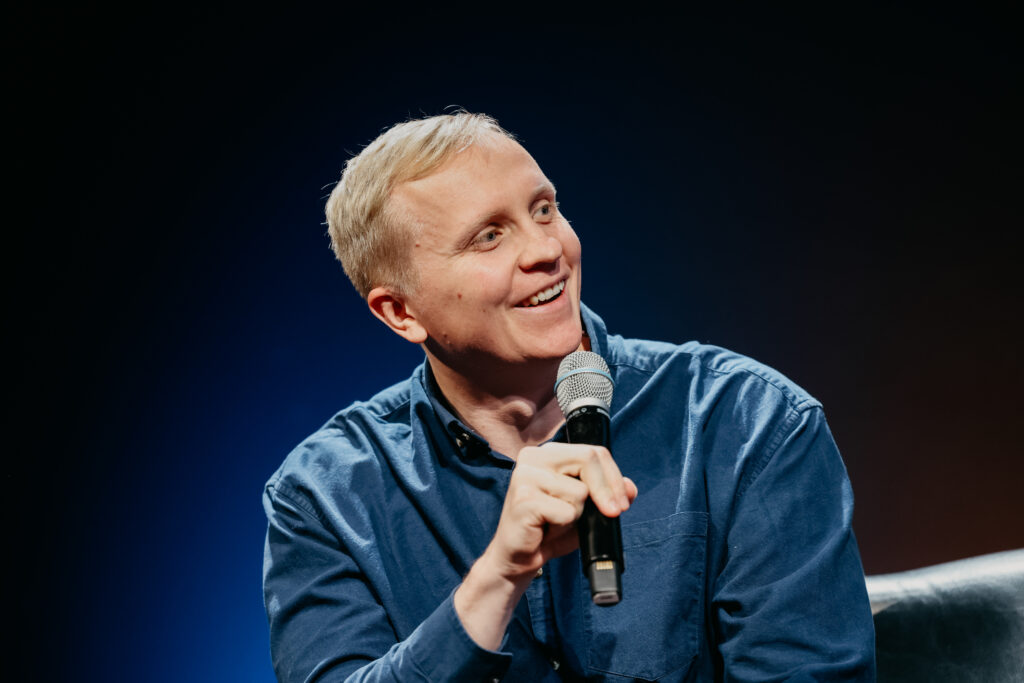By Chris Forrester

More than one panelist during the February 4 opening day of the SmallSat Symposium in Mountain View has talked about the need to raise cash. The topic was the prime focus of a session which looked specifically at the state of the funding market for early round endeavours. Steve Kaufman, a partner at Hogan Lovells moderated the session which included experts with hard-earned experience of handling the “money” question.
Kaufmann joked that any rumor that cash would be handed out at the end of the session was wholly false! Nevertheless, the panelists delivered solid advice for delegates. Kaufman told delegates that 2024, by and large, had been a good year and asked his panel how they saw 2025.

The panel’s credentials were impressive. Lewis Jones, VP at investment firm Seraphim Space, explained that they were investors in satellites, rockets and space-related applications. “We are based in the UK but one-third of our interests are in the U.S., and another third in the rest of the world. A year ago, he reminded delegates, all was doom and gloom, but the market recovered pretty well with many new businesses being founded. We saw early stage (funding) becoming pretty resilient although growth stage was fairly stagnant. We see 2025 as giving us a lot of hope with potential IPO markets returning. People are getting used to space, and defense.”
Dr. Timur Davis, Investment Director at Munich Re Ventures which is a Venture Capital firm based in Silicon Valley and has $1.2 billion under management. They have already made a handful of space-related investments. “Space, in our view, did very well last year. What’s been slow is on the exit side. We saw Lockheed acquire Terran Orbital but we are hopeful that 2025 will see more activity and the signs from the new Administration look pretty positive. One area to be aware of is the pure defense technology. I have been involved in this business for some 6 years and through most of that time the focus has been purely on commercial activity. That’s changing. We first saw dual use emerging, with commercial and government as clients. Now we are seeing start-ups focus only on government including defense and security and we are seeing investor funds looking at those sorts of deals.”

Dr. Xiaoming Yin, senior investment manager at Lockheed Martin Ventures and a $400 million fund and about one-quarter of Lockheed Martin’s portfolio is directly into space-related activity. Dr. Yin said that while she agreed that very early funding was being found, up to ‘A’ rounds of cash-raising. But moving beyond – and including even ‘A’ rounds – were proving much more difficult to attract outside investors.
Raphael Roettgen, Founding Partner at E2MC which is a wholly space-focused Venture Capital fund and involved in very early cash-raising one element of the fund. “Since the (US) election we have seen interest growing. The Iron Dome proposal from government is one aspect. This will certainly mean tens of billions in investment and perhaps hundreds of billions. There are so many things that can be done in space: resource mining, manufacturing, so my question is why don’t we have a Stargate for space?”
Michael Brown, Partner at law firm Fenwick and advises on structuring, M&A and financing and admitted that for companies to jump from ‘A’ round to ‘C’ round in their cash-raising was extremely hard last year. “I am seeing much more interest now. There’s also interest in the merging of space, defence and ‘deep-tech’ and also interest from the multi-stage venture capitalists many of which have billions of dollars under management. I really think 2025 will be better.”
